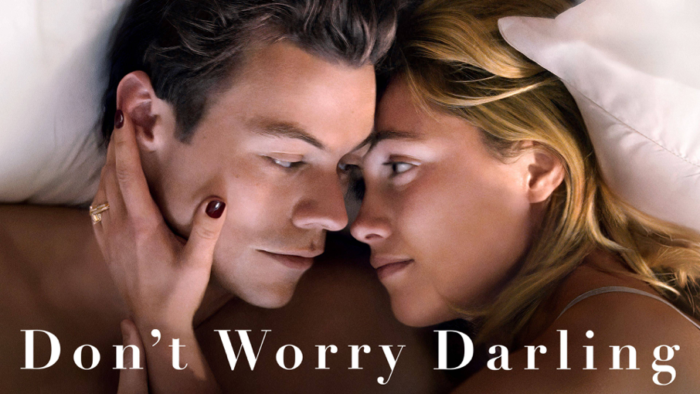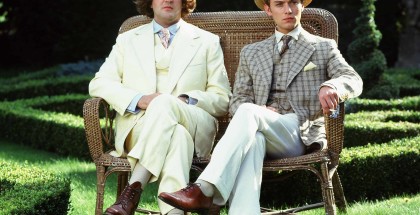VOD film review: Don’t Worry Darling
Review Overview
Cast
7Script
4David Farnor | On 12, Nov 2022
Director: Olivia Wilde
Cast: Florence Pugh, Chris Pine, Harry Styles, Gemma Chan
Certificate: 15
“Darling, I’m with you all the time…” That’s the song that we hear repeatedly in Don’t Worry Darling, a romantic 1930s-style ditty that’s actually penned by the film’s co-star, Harry Styles. Just how significant that turns out to be is a sign of the film’s strengthes and weaknesses, both on screen and off.
Directed by Olivia Wilde, the ambitious thriller introduces us to a 1950s-era society where Alice (Florence Pugh) feels blessed to be living in the idyllic community of Victory, an experimental town out in the desert that prizes maintaining the all-American status quo. Alice stays home and keeps the place spick and span, while her husband Jack (Harry Styles) heads out to do secretive work along with all the other men. At the top of the pyramid? Frank (Chris Pine), who spends his days overseeing this old-school utopia, managing the classified “development of progressive materials” and broadcasting motivational speeches into every house in town, speeches that sing of the potential of men and the brilliance of the woman who support them.
To say that there’s trouble in paradise is no spoiler, and slowly we begin to see the crumbling facade of this claustrophobic, cut-off community – a place where luxury and debauchery are tightly knit into a fabric that’s stylish yet suffocating. The more that Alice begins to suspect that there’s something Jack isn’t telling her, the more she notices things up with other housewives – while some of them, such as Frank’s spouse, Shelley (Gemma Chan), encourage her to focus on her domestic duties.
Written by Katie Silberman, the film comes at a moment that really does resonate, as society’s move to becoming more progressive is hit by a backlash of fragile male egos looking back to 1950s stereotypes as the model to aspire to. While Harry Styles – wavering accent aside – does a solid job as the Frank Sinatra-esque breadwiner, Florence Pugh’s performance is the real reason to tune in. She imbues Alice with modern sensibilities, awareness and confidence to speak out, which makes her an electrifying, jarring presence in this retro community.
While we’ve seen picture-perfect suburbia descend into paranoia many times before, Don’t Worry Darling’s success is in how that descent is presented, whether it’s walls and windows eerily closing in or simply letting Pugh and a brilliantly sinister Chris Pine share barbed words in a quiet kitchen. Wilde confidently serves up bold ideas and flourishes here, from visual motifs that pay off further down the line to John Powell’s ominously low-pitched score with Hermann-esque stabs of strings. Which is why it’s such a shame that the final act of the film doesn’t stick the landing, with details and motivations left unexplained in a way that’s unsatisfying rather than ambiguous. The off-screen furore surrounding the film’s release, including reported on-set tensions and comments about Harry Styles’ comments on acting, are a distraction from those in-baked flaws, in a way that feels oddly apt – you come away from Don’t Worry Darling with the sense of having had a conversation that never really got to heart of the matter.
















